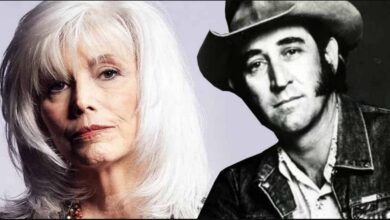“‘Til a Tear Becomes a Rose” was the sole duet by Keith Whitley and Lorrie Morgan
The song “‘Til a Tear Becomes a Rose,” released posthumously on Keith Whitley’s “Greatest Hits” album, marked a significant moment in country music history. Released as the only single from the album in 1990, it achieved notable success, peaking at No. 13 on the Billboard country charts. This song symbolized not just Whitley’s enduring legacy but also his and Lorrie Morgan’s unfulfilled potential as a duet.
Keith Whitley and Lorrie Morgan, who married in November 1986, had stirred anticipation among fans for a collaborative musical venture. Despite high hopes, fate intervened tragically when Whitley died from alcohol poisoning in 1989, only three years into their marriage. However, the couple had fortunately recorded a few tracks together, including “‘Til a Tear Becomes a Rose,” which stands as a poignant reminder of what could have been.
Their rendition of this song garnered critical acclaim, earning them the award for Vocal Event of the Year at the Country Music Association awards. This win was not only a professional triumph but also an emotional one, especially for Morgan, as it highlighted the depth of her loss and the love that inspired their music. The song, with its themes of enduring love and support, seemed to resonate with listeners who felt the pain of Whitley’s untimely passing.
Interestingly, the origins of “‘Til a Tear Becomes a Rose” trace back to Leon Everette, who first recorded it in 1985 for his album “Where’s the Fire.” His version, though less known, laid the groundwork for the song’s later renditions. In 1999, John Prine and his wife Fiona Whelan Prine also covered the song for Prine’s album “In Spite of Ourselves,” adding their unique touch to its evolving legacy.
A particularly memorable tribute occurred in 2013 when Lorrie Morgan joined forces with her and Whitley’s son, Jesse Keith Whitley, on stage. Jesse, only two years old at his father’s death, showcased a natural talent and chemistry with Morgan that breathed new life into the song. Their performance was more than a tribute; it was a testament to the enduring influence of Keith Whitley’s artistry. Jesse’s close approximation of his father’s style in this song indicated not just a continuation of his father’s legacy but also the emergence of his own artistic identity.
?si=8EZRq1U_NOZWtIHj





